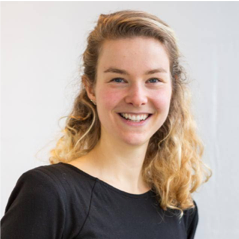Presumptions in Dutch money laundering cases: a presumption of innocence or of guilt?
by Tessa van der Rijst
In criminal cases, a judge can never be completely sure as to whether the accused is guilty or not. Therefore, a balance must be found between the risk of acquitted guilty persons (false negatives) and the risk of convicted innocent persons (false positives). In theory, the balance is in favor of the acquitted guilty. A famous remark, made by William Blackstone, is that it is ‘better that ten guilty persons escape, than that one innocent suffers’. This is also referred to as the presumption of innocence and can be interpreted as that it is better to acquit ten guilty persons than to convict one innocent person. After all, criminal convictions and the (possibly) subsequent sentences can have a large impact on people’s lives. Therefore, it should be justified and not imposed on people frivolously. This is especially the case for imprisonment, but fines can be very impactful as well. It is hard to determine how this theory is put into practice and what the specific acceptance ratio is: this may be valued differently by different people and can dependent on the circumstances of a case, the time, culture and place.
In this blog I pose the question whether the presumption of innocence is still in place, specifically in criminal cases concerning money laundering. In these cases, presumptions of law or fact are extensively used. Basically, money laundering is hiding criminal money. However, there are many cases in which there is a lot of ‘suspicious money’ where no direct causal link with any original crime can be established. In these cases judges are allowed to use a so-called step-by-step plan to assess whether money laundering can be proven. In this plan, the judge establishes whether the prosecutor provided enough circumstantial evidence for a presumption of money laundering. If this is the case, an explanation from the accused is required. If the accused fails to give an adequate, plausible (aannemelijk geworden) explanation, conviction can follow, based on the presumption in combination with the lack of a plausible statement.
This step-by-step approach is the result of, amongst others, political tension regarding the difficulty in tackling money laundering and skimming the money of criminals. It was said that it should be easier to be convicted for money laundering, even when the original crime cannot be proven. Nowadays there is still a lot of political attention paid to making the fight against money laundering more effective and efficient (see Wet Plan van Aanpak Witwassen). Recently, the Dutch minister of Justice and Security announced that he is working on a ‘non conviction based confiscation’ of money and goods that are probably acquired through crime. This would also be based on a presumption of guilt in combination with the statement of the accused, as is the case for money laundering. After all, according to the minister, telling a ‘vague story’ is now too appealing for accused persons.
According to the ECtHR, presumptions of fact or of law as well as drawing inferences from an accused’s silence do not necessarily constitute a violation of the presumption of innocence (see e.g. Salabiaku v. France 1988, §28). The step-by-step approach used for money laundering is considered ECHR-proof – at least in the specific case of Zschüschen v. Belgium (2019). A certain shift of the burden of proof to the defense is apparently allowed. However, this should be ‘within reasonable limits which take into account the importance of what is at stake and maintain the rights of the defense’.
To my mind, even though money laundering presumptions apparently do not violate Article 6 ECHR, the Dutch approach is walking a thin line. I learned from extensive case law research that it can be rather easy for the prosecutor to establish a presumption. Contrary to Zschüschen, there is not always a sign of any criminal involvement (see e.g. https://uitspraken.rechtspraak.nl/inziendocument?id=ECLI:NL:RBGEL:2020:1596). Additionally, it is not always reflected in the published judgement whether the prosecutor investigated the financial situation of the accused (see e.g. https://uitspraken.rechtspraak.nl/inziendocument?id=ECLI:NL:GHAMS:2015:1616). In some cases it even appears there was no research conducted by the prosecutor despite the statement of the accused stating (s)he had a source of legal income (see e.g. https://uitspraken.rechtspraak.nl/inziendocument?id=ECLI:NL:RBROT:2013:7286; https://uitspraken.rechtspraak.nl/inziendocument?id=ECLI:NL:RBROT:2019:10391). In these cases the judge finds that the statement of the accused is not substantiated or not substantiated enough with documents and/or is brought forward too late. Finally, in quite some cases in which the accused poses an alternative scenario, the judge sets it aside as ‘not plausible enough’, with scant reasoning (see e.g. https://uitspraken.rechtspraak.nl/inziendocument?id=ECLI:NL:RBAMS:2018:4347). In light of the presumption of innocence this all seems rather dubious to me.
To conclude, to protect the presumption of innocence in Dutch money laundering cases, Dutch criminal court judges should pay attention to the rights of the defense especially well and provide reasoning especially well and clearly in the judgments. I propose the following points to take into account. Firstly, criminal law judges should clearly explain that there is a prima facie case and how much weight they attach to the (absence of a) statement of the accused. Secondly, it should be critically assessed whether the evidence the prosecutor provided was substantial enough to base a presumption on. Thirdly and finally, criminal law judges should be open-minded towards possible alternative explanations of the defendant. The standards applied to the (substantiation of the) statement of the accused should not be too high, to prevent false positives to occur.
Bio

Tessa van der Rijst is a PhD candidate in criminal law at the Free University of Amsterdam since March 2020. Her PhD research concerns the Dutch criminal law judge’s use of the lack of a reasonable statement of the accused in relation to the evidence and the type of crime in the fact finding courts.